What is the Best Thickness for Engineered Hardwood Flooring?Choosing the right flooring for your home is a significant decision. It affects not only the aesthetics of your space but also its functionality and comfort. Among the myriad of flooring options available, engineered hardwood stands out for its blend of beauty, durability, and versatility. But with choices come questions: How thick should your engineered hardwood be? Does thickness impact the floor's performance? This article delves into the world of engineered hardwood flooring, answering these questions and more, ensuring you make an informed decision for your Toronto home. Understanding Engineered Hardwood Flooring: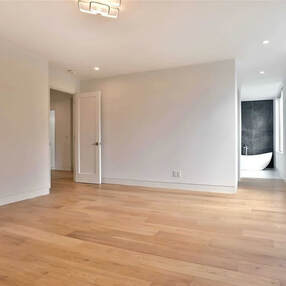 Engineered wood flooring toronto Engineered wood flooring toronto At its core, engineered hardwood flooring is a marvel of construction and design. Unlike solid hardwood, which is milled from a single piece of timber, engineered hardwood is composed of multiple layers. The top layer, known as the veneer, is a thin slice of real hardwood. This is what gives the flooring its natural and elegant appearance. Beneath this veneer are several layers of high-density fiberboard or plywood, providing stability and resistance to moisture. What sets engineered hardwood apart is its adaptability. It can be installed in areas where solid hardwood might not be suitable, such as basements or over radiant heating systems. The multi-layered construction offers resistance to changes in temperature and humidity, reducing the risk of warping or buckling. But not all engineered hardwood is created equal. The thickness of the veneer and the overall plank can vary, influencing the floor's durability and lifespan. To truly appreciate the importance of thickness in engineered hardwood, one must delve deeper into its implications for performance and longevity. For a more comprehensive understanding of engineered hardwood and its varieties, explore our detailed guide on Engineered Hardwood Flooring. The Significance of Thickness in Engineered HardwoodWhen it comes to engineered hardwood, thickness plays a pivotal role in determining the floor's durability and resilience. A thicker veneer layer allows for more frequent refinishing, extending the life of the floor. On the other hand, a thinner veneer might not support refinishing, making it essential to protect the floor from scratches and dents.
Benefits of Opting for a Thicker Engineered HardwoodChoosing a thicker engineered hardwood floor comes with a slew of advantages:
The Core of Engineered Hardwood: What Makes It SpecialThe core of engineered hardwood is what sets it apart from its solid counterpart. Comprising multiple layers of wood or plywood, this core imparts stability and resistance to the flooring. The quality of these layers plays a crucial role in determining the floor's overall performance.
Addressing Common QueriesLet's tackle some of the frequently asked questions about engineered hardwood thickness:
Disadvantages of Engineered Wood Flooring: A Balanced ViewWhile engineered hardwood offers numerous benefits, it's essential to consider its potential drawbacks:
Making the Right Choice: Factors to ConsiderChoosing the perfect engineered hardwood flooring involves considering several factors:
The Verdict: Is Thicker Always Better?When it comes to engineered hardwood flooring, thickness does play a pivotal role, but it's not the only factor to consider. A thicker veneer offers more refinishing opportunities, which can be a boon for homeowners looking for longevity. However, the core's quality, the type of adhesive used, and the installation method are equally, if not more, crucial. For instance, a thicker floor with a subpar core might not perform as well as a thinner floor with a high-quality core. Similarly, a well-installed thinner floor can outlast a poorly installed thicker one. It's all about striking the right balance and understanding the specific needs of your space. Engineered hardwood flooring offers a blend of beauty, durability, and versatility. While its thickness is an essential factor, it's just one piece of the puzzle. Toronto homeowners should consider all aspects, from core quality to installation methods, to make an informed decision. At Parqueteam hardwood Flooring, we pride ourselves on guiding our clients through every step, ensuring they choose the perfect flooring solution tailored to their needs. Whether you're leaning towards a solid hardwood floor or exploring laminate options, our team is here to help you navigate the world of flooring with confidence. FAQ1. What is engineered hardwood flooring? Engineered hardwood flooring consists of a real wood veneer on top and multiple layers of plywood or high-density fiberboard beneath. This structure provides added durability and stability compared to solid wood.
2. How does thickness affect the durability of engineered hardwood? Thicker floors generally offer better durability. They can withstand wear and tear more effectively and are less prone to denting from heavy furniture. 3. How important is the veneer thickness in engineered hardwood? The veneer's thickness is crucial for the floor's longevity. A thicker veneer allows the floor to be sanded and refinished multiple times, extending its life. 4. What is a good veneer thickness for engineered hardwood? A veneer that's at least 2mm thick is considered ideal for most residential settings, allowing for potential sanding and refinishing. 5. How does the core quality impact the floor's performance? A high-quality core, like plywood, ensures the floor remains stable over time, reducing the chances of warping or bowing. 6. Is a 3/8 inch engineered wood flooring recommended? 3/8 inch thickness engineered hardwood floor is a decent floor to have, and also can be cheaper option if budget is tight, but keep in mind the limitations of this thickness and long term durability of it, as most likely you won't be able to refinish this floor in the future due to it being very thin. 7. Does thickness play a role in sound insulation, especially in condos? Yes, thicker engineered hardwood floors can offer better sound insulation, making them a preferred choice in multi-story buildings or condos. 8. How can I determine the quality of engineered hardwood? Look for factors like a thicker veneer, a high-quality core material, and reviews or recommendations from a reputable manufacturer. 9. Is thicker engineered hardwood always the better choice? While thickness is essential, other factors like core quality, adhesive type, and installation method also play crucial roles in the floor's overall performance. 10. Where can I get expert advice on choosing the right engineered hardwood for my home in Toronto? Parqueteam Hardwood Flooring offers comprehensive guidance to Toronto homeowners, ensuring they select the best flooring solution for their specific needs.
1 Comment
Glue Down Engineered Hardwood Flooring: Is It Any Good?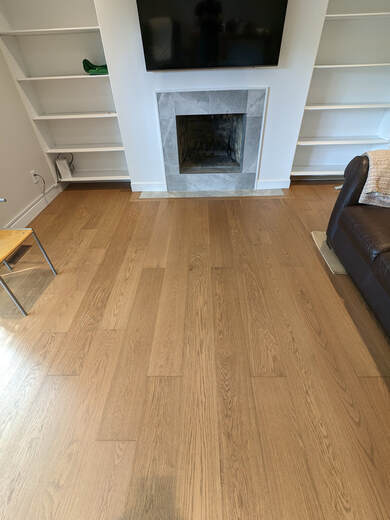 Close-up of engineered hardwood planks. Close-up of engineered hardwood planks. When it comes to flooring options, engineered hardwood flooring is a popular choice among homeowners in Toronto. This type of flooring combines the beauty of real wood with the practicality of a composite product. In this article, we will delve into the topic of glue down engineered hardwood flooring, answering common questions and providing valuable insights. What is Engineered Hardwood Flooring?Engineered hardwood flooring is a type of flooring that is made up of a top layer of real hardwood veneer adhered to a core of high-density fiberboard (HDF) or plywood. This construction makes engineered hardwood more stable than solid hardwood, especially in response to changes in temperature and humidity. This makes it a great choice for basements and over radiant heating systems, where traditional solid hardwood may not be suitable. You can learn more about engineered hardwood flooring on our website. Glue Down Method for Engineered Hardwood Flooring
Glue Down vs. Nail Down: Which is Better?When it comes to installing engineered hardwood flooring, there are two main methods: glue down and nail down. The glue down method, as we discussed earlier, involves adhering the flooring directly to the subfloor using a special adhesive. This method provides a solid, stable floor that feels more like a solid hardwood floor. On the other hand, the nail down method involves attaching the flooring to the subfloor using nails or staples. This method is typically used for solid hardwood flooring, but it can also be used for engineered hardwood. So, which method is better? The answer depends on your specific needs and circumstances. The glue down method provides a more stable floor, but it is more labor-intensive and permanent. The nail down method, on the other hand, is quicker and easier, but it may not provide the same level of stability. You can learn more about the different installation methods on our blog. Can Engineered Hardwood Flooring be Glued to Plywood?Yes, engineered hardwood flooring can be glued to plywood. In fact, plywood is one of the most common types of subfloor that engineered hardwood flooring is installed on. The glue down method works well with plywood because it provides a smooth, stable surface for the flooring to adhere to. However, it's important to note that the plywood must be properly prepared before the flooring is installed. This includes ensuring that the plywood is clean, dry, and level. Any irregularities in the plywood can cause problems with the installation and performance of the flooring. Is Glue Down Installation Better than Floating Installation for Engineered Wood Floors?
Underlayment for Glue Down Engineered Hardwood FlooringWhen it comes to underlayment for glue down engineered hardwood, there are two main options: direct glue down and double glue down. In the direct glue down method, the flooring is glued directly onto the subfloor. In the double glue down method, an underlayment (such as cork) is first glued to the subfloor, and then the engineered hardwood floor is glued on top of it. The double glue down method can provide additional sound insulation and comfort underfoot. How Long Before You Can Put Furniture on New Glued Down Engineered Hardwood Floors?After installing glue down engineered hardwood flooring, it's recommended to wait at least 24 hours before placing furniture on the new floors. This allows the adhesive to fully cure and ensures a strong bond between the flooring and the subfloor. However, the exact waiting time can vary depending on the specific adhesive used, so it's always best to follow the manufacturer's instructions. Glue Down Engineered Hardwood Flooring: Maintenance and LongevityEngineered hardwood flooring is known for its durability and long lifespan, but like any flooring, it requires proper care and maintenance to keep it looking its best. Maintaining your engineered hardwood flooring is relatively straightforward. Regular sweeping or vacuuming can help remove dust and debris that might scratch the surface. For deeper cleaning, use a damp mop and a cleaner specifically designed for hardwood floors. Avoid using excessive water, as it can seep into the cracks and cause damage. One of the advantages of engineered hardwood flooring is that it can be refinished if it becomes scratched or worn. However, the number of times it can be refinished depends on the thickness of the top veneer. Some high-quality engineered floors can be refinished multiple times, while others may only be able to be refinished once or twice. In terms of longevity, engineered hardwood flooring can last for decades with proper care. The exact lifespan will depend on factors such as the quality of the flooring, the amount of foot traffic it receives, and how well it is maintained. To ensure the longevity of your flooring, consider hiring professional hardwood flooring installers for the installation process. Professionals have the knowledge and experience to install the flooring correctly, which can help prevent issues down the line. In conclusion, glue down engineered hardwood flooring is a versatile and durable choice for your home. It offers the beauty of real wood with the added stability of engineered construction. Whether you're renovating your current home or building a new one, consider engineered hardwood flooring for a stylish and long-lasting flooring solution. For more information on engineered hardwood flooring and other types of flooring, check out our blog or contact us at Parqueteam Hardwood Flooring. We're here to help you make the best choice for your home. Please note that this article is intended to provide general information. For specific advice related to your situation, please consult with a professional. FAQ
Engineered Hardwood Flooring: A Comprehensive Guide for Toronto Homeowners
What is Engineered Hardwood Flooring?Engineered hardwood flooring is a type of flooring that is made up of a real hardwood veneer attached to a core constructed from multiple layers of wood, all laid in different directions. This construction method makes engineered hardwood more stable than traditional solid hardwood, especially in Toronto's variable climate. Understanding the Structure of Engineered Hardwood FlooringEngineered hardwood flooring is unique in its construction. Unlike solid hardwood, which is made entirely of a single piece of wood, engineered hardwood consists of a top layer of real hardwood veneer attached to a core of multiple layers of wood. These layers are laid in different directions, which gives engineered hardwood its stability and resistance to changes in temperature and humidity. The thickness of the top veneer layer can vary, but it's typically between 0.6mm and 6mm. The thickness of this layer can impact the lifespan of your engineered hardwood floor, as thicker veneers can be sanded and refinished more times than thinner ones. At Parqueteam Hardwood Flooring, we offer a variety of engineered hardwood flooring options with different veneer thicknesses to suit your needs. Benefits of Engineered Hardwood FlooringEngineered hardwood flooring offers several advantages over other types of flooring. Here are a few reasons why it's a popular choice for homeowners in Toronto:
Engineered Hardwood Flooring vs. Other Flooring OptionsWhen comparing engineered hardwood flooring to other types of flooring, such as laminate and vinyl, it's important to consider factors like cost, durability, and appearance. Engineered hardwood flooring tends to be more expensive than laminate or vinyl flooring. However, it's a long-term investment that can add value to your home. Unlike laminate or vinyl, engineered hardwood can be refinished if it becomes worn or damaged, extending its lifespan and making it a cost-effective choice in the long run. In terms of appearance, engineered hardwood flooring offers the beauty and warmth of real wood, which can enhance the aesthetic appeal of your home. While laminate and vinyl flooring can mimic the look of wood, they cannotmatch the depth and richness of real wood that engineered hardwood flooring provides. When it comes to durability, engineered hardwood flooring holds up well against daily wear and tear. While it can scratch, the ability to refinish the surface means it can look like new for many years. On the other hand, laminate and vinyl flooring can be more resistant to scratches but once damaged, they cannot be refinished and must be replaced. Engineered Hardwood Flooring vs. Laminate Flooring
Installation of Engineered Hardwood Flooring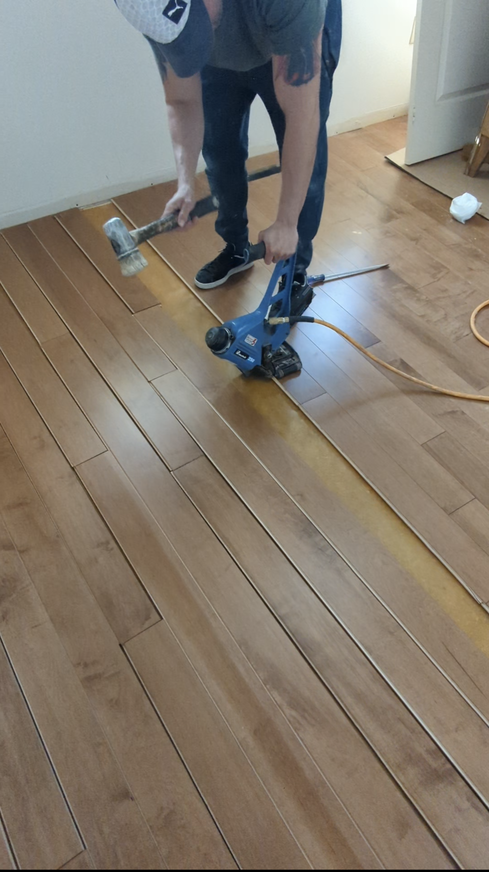 a professional installer meticulously laying down engineered hardwood planks, demonstrating the precision and expertise involved in the installation process. a professional installer meticulously laying down engineered hardwood planks, demonstrating the precision and expertise involved in the installation process. The installation of engineered hardwood flooring is a critical process that can significantly impact the performance and lifespan of your floors. At Parqueteam Hardwood Flooring, we offer professional engineered hardwood flooring installation services, ensuring that your floors are installed correctly and efficiently. There are several methods to install engineered hardwood flooring, including floating, gluing, or stapling. The choice of installation method depends on various factors such as the type of subfloor, the specific engineered hardwood product, and the conditions of your home. A floating installation is a method where the engineered hardwood planks are not attached to the subfloor but are instead attached to each other. This method is relatively quick and easy, making it a popular choice for DIY enthusiasts. The two options for floating install of engineered hardwood floors are: Click system and tongue and groove floating install. Gluing is another method where the engineered hardwood planks are adhered directly to the subfloor with a strong adhesive. This method provides a solid feel underfoot and can help with sound reduction. Nail-Down is a method where the engineered hardwood planks are attached to the subfloor using a special nailer and cleats to nail down the engineered hardwood floor.. This method is typically used when the subfloor is made of wood. Regardless of the installation method, it's crucial to ensure that the subfloor is clean, dry, and level before installation begins. This will help to ensure a smooth and successful installation process. The Cost of Installing Engineered Hardwood FloorsThe cost of installing engineered hardwood floors can vary depending on several factors, including the type of engineered hardwood product, the size of the area to be covered, and the complexity of the installation. As a general rule, you can expect to pay between $3 and $10 per square foot for materials, and between $2 and $8 per square foot for engineered hardwood flooring installation in the Toronto area. At Parqueteam Hardwood Flooring, we strive to provide high-quality engineered hardwood flooring at competitive prices. We also offer professional installation services, ensuring that your new floors are installed correctly and efficiently. Glue or Float: Which Installation Method is Better?One common question we often encounter is whether it's better to glue or float an engineered wood floor. The answer depends on several factors, including the type of engineered hardwood product, the conditions of your home, and your personal preferences. Floating is a method where the engineered hardwood planks are not attached to the subfloor but are instead attached to each other. This method is relatively quick and easy, making it a popular choice for DIY enthusiasts. However, floating floors may not feel as solid underfoot compared to floors that are glued or nailed down. Gluing, on the other hand, involves adhering the engineered hardwood planks directly to the subfloor with a strong adhesive. This method provides a solid feel underfoot and can help with sound reduction. However, it's more labor-intensive and requires a clean, dry, and level subfloor. At Parqueteam Hardwood Flooring, our team of experienced hardwood flooring installers can guide you in choosing the best installation method for your engineered hardwood floors. The Easiest Engineered Hardwood Flooring to InstallWhen it comes to the installation of engineered hardwood flooring, some products are easier to install than others. Engineered hardwood floors with a click-lock system are generally the easiest to install, as they can be floated without the need for nails or glue. This makes them a popular choice for DIY enthusiasts. However, for the best results, it's recommended to have your engineered hardwood floors installed by a professional. At Parqueteam Hardwood Flooring, our team of experienced hardwood flooring installers can ensure a smooth and efficient installation process, providing you with beautifully installed floors that will last for years. Engineered Hardwood Flooring and UnderlayAnother common question is whether engineered wood flooring needs underlay. The answer is yes, but only for engineered hardwood floors that are installed via the floating installation method. In this case, underlay is typically recommended to put under the installed engineered hardwood flooring. The underlay serves several purposes:
For engineered hardwood floors that installed via the nail down installtion method, an underlay is not needed. At Parqueteam Hardwood Flooring, we can advise you on the best type of underlay for your engineered hardwood floors, ensuring optimal performance and longevity. The Lifespan of Engineered Hardwood Floors
Do Engineered Wood Floors Scratch Easily?Like all types of hardwood flooring, engineered hardwood floors can scratch. However, the degree to which they scratch depends on several factors, including the hardness of the wood species used in the top veneer layer, the finish applied to the floors, and how the floors are used and maintained. To prevent scratches, it's important to keep your floors clean and free of dirt and grit, which can cause scratches. Using furniture pads, maintaining a suitable indoor humidity level, and avoiding walking on the floors with high heels or sports shoes can also help prevent scratches. If your engineered hardwood floors do get scratched, they can be sanded and refinished to restore their appearance. However, the number of times the floors can be refinished depends on the thickness of the top veneer layer. For Conclusion...Engineered hardwood flooring is a versatile and durable flooring option that offers the beauty of real wood with the practical benefits of man-made materials. Whether you're renovating your home or installing new floors, engineered hardwood flooring is a worthy consideration. We hope this comprehensive guide has provided you with valuable insights into engineered hardwood flooring. For more information on this and other flooring topics, be sure to check out our blog, where we regularly post articles to help you make informed decisions about your flooring needs. At Parqueteam Hardwood Flooring, we're committed to providing high-quality flooring solutions to homeowners in Toronto and the Greater Toronto Area. From hardwood flooring installation to hardwood flooring restoration and refinishing, we've got you covered. Contact us today to learn more about our services and how we can help you achieve the perfect floors for your home. Thank you for joining us on this journey into the world of engineered hardwood flooring. We look forward to serving you and helping you create the perfect floors for your home. FAQQ1: What is engineered hardwood flooring?
Engineered hardwood flooring is a type of flooring that is made up of a real hardwood veneer attached to a core constructed from multiple layers of wood, all laid in different directions. This construction method makes engineered hardwood more stable than traditional solid hardwood. Q2: How long do engineered hardwood floors last? On average, engineered hardwood floors can last between 20 to 30 years. However, high-quality engineered hardwood floors with a thick top veneer layer can last even longer, especially if they are well maintained. Q3: Do engineered wood floors scratch easily? Like all types of hardwood flooring, engineered hardwood floors can scratch. However, the degree to which they scratch depends on several factors, including the hardness of the wood species used in the top veneer layer, the finish applied to the floors, and how the floors are used and maintained. Q4: Is it better to glue or float an engineered wood floor? The answer depends on several factors, including the type of engineered hardwood product, the conditions of your home, and your personal preferences. Floating is a method where the engineered hardwood planks are not attached to the subfloor but are instead attached to each other. Gluing involves adhering the engineered hardwood planks directly to the subfloor with a strong adhesive. Q5: Does engineered wood flooring need underlay? Yes, an underlay is typically recommended for engineered hardwood flooring. The underlay serves several purposes, including acting as a moisture barrier, helping with sound reduction, and providing a softer feel underfoot. Q6: How much does it cost to install engineered hardwood floors? The cost of installing engineered hardwood floors can vary depending on several factors, including the type of engineered hardwood product, the size of the area to be covered, and the complexity of the installation. On average, you can expect to pay between $3 and $10 per square foot for materials, and between $2 and $8 per square foot for installation. Q7: Which is better, engineered hardwood or laminate? Both engineered hardwood and laminate flooring have their own advantages. Engineered hardwood offers the beauty and warmth of real wood, can be refinished if it becomes worn or damaged, and can add value to your home. Laminate flooring, while resistant to scratches and stains, is generally less expensive and can mimic the look of wood. However, it cannot be refinished and must be replaced if it becomes damaged. Q8: What is the easiest engineered flooring to install? Engineered hardwood floors with a click-lock system are generally the easiest to install, as they can be floated without the need for nails or glue. However, for the best results, it's recommended to have your engineered hardwood floors installed by a professional. Which Hardwood is Best for Flooring? A Comprehensive Guide for Toronto Homeowners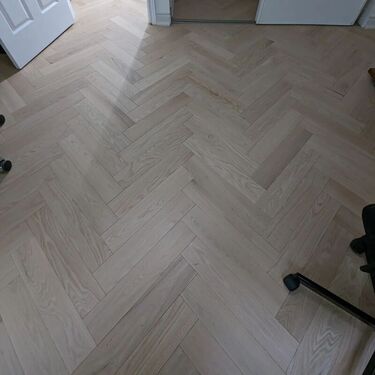 A room featuring oak hardwood flooring, showing its classic beauty and durability. A room featuring oak hardwood flooring, showing its classic beauty and durability.
Choosing the right hardwood for your flooring is a critical decision that can significantly impact the aesthetics, durability, and value of your home. With a myriad of options available, it can be challenging to determine which hardwood is the best for flooring. In this article, we'll explore various hardwood types, their pros and cons, and guide you in making the best choice for your Toronto home.
Durability: A Key Consideration
When it comes to hardwood flooring, durability is a crucial factor to consider. After all, you want your floors to withstand the test of time and the daily wear and tear. So, which hardwood flooring is the most durable?
Oak and maple are often touted as some of the most durable hardwoods for flooring. Both are hard, dense woods that can withstand heavy foot traffic and resist scratches and dents. However, the durability of your hardwood flooring also depends on its finish. A high-quality finish can enhance the durability of your floors, making them more resistant to scratches and stains. Our hardwood flooring finishes page provides more information on the different types of finishes available. Oak vs. Maple: A Closer Look
Oak and maple are two of the most popular choices for hardwood flooring in Toronto. But how do they compare, and which one is better for flooring?
Oak Flooring
Oak is a classic choice for hardwood flooring, known for its strength, durability, and beautiful grain patterns. It comes in two varieties: red oak and white oak. Red oak has a warm, reddish tone and pronounced grain patterns, while white oak is harder and has a more subtle, straight grain. However, do oak floors scratch easily? While no hardwood flooring is completely scratch-proof, oak's hardness and grain patterns can help hide scratches and dents. For more information on oak flooring, check out our solid hardwood flooring page.
Maple Flooring
Exploring Other Popular Hardwood Options
While oak and maple are popular choices, they are not the only options for hardwood flooring. Let's explore some other popular wood choices for hardwood flooring.
Walnut Flooring
Walnut is a beautiful hardwood known for its rich, dark color and straight grain. It's slightly softer than oak and maple, but its deep color can help hide scratches and dents. Walnut can add a touch of luxury and sophistication to any room. For more information on walnut and other hardwood options, visit our hardwood flooring styles page.
Hickory Flooring
Hickory is one of the hardest domestic hardwoods, making it an excellent choice for high-traffic areas. It has a varied grain pattern that can add character and warmth to a room. However, its hardness makes it more challenging to install and may require professional installation.
The Most Scratch-Resistant Hardwood Flooring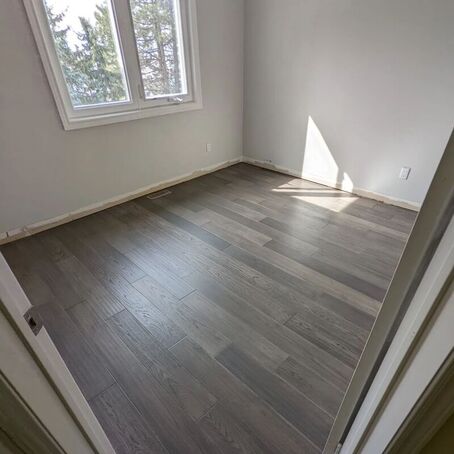 A high-traffic room with hickory hardwood flooring, demonstrating its durability and unique grain pattern. A high-traffic room with hickory hardwood flooring, demonstrating its durability and unique grain pattern.
While no hardwood flooring is completely immune to scratches, some types are more resistant than others. Hardwoods like oak, maple, and hickory are known for their durability and resistance to scratches. However, the finish you choose can also significantly impact the scratch-resistance of your floors. For instance, matte finishes can help hide scratches better than high-gloss finishes.
If scratch resistance is a top priority for you, consider engineered hardwood flooring. The top layer of engineered hardwood is real wood, but the underlying layers are designed to provide additional stability and resistance to scratches and dents. Check out our engineered vs. solid hardwood in Toronto blog post for a more in-depth comparison. The Rise of Engineered Hardwood Flooring
In recent years, engineered hardwood flooring has gained popularity among Toronto homeowners. But what is engineered hardwood, and is it a good choice for flooring?
Engineered hardwood is made of a core of hardwood or plywood with a layer of hardwood veneer affixed to the top surface. It's designed to reduce the moisture problems associated with conventional hardwood. Its multi-layered construction makes it more stable than solid hardwood, while still providing the beauty and warmth of real wood. Engineered hardwood can be a great choice for areas where solid hardwood is not recommended, such as basements or over radiant heating systems. It's also generally more cost-effective than solid hardwood. Our engineered hardwood flooring page provides more information on the benefits of engineered hardwood. Choosing the Best Hardwood Flooring for Your Toronto Home
Choosing the best hardwood flooring for your Toronto home depends on several factors, including your lifestyle, budget, and personal style. Here are a few tips to help you make the best choice:
Whether you prefer the classic beauty of oak, the modern appeal of maple, or the practicality of engineered hardwood, the best hardwood for your flooring is the one that meets your needs and complements your home's style.
At Parqueteam Hardwood Flooring, we're committed to helping Toronto homeowners make the best choice for their hardwood flooring. Contact us today for more information and guidance on choosing the perfect hardwood flooring for your home. Frequently Asked Questions
1. Which hardwood flooring is the most durable?
Oak, maple, and hickory are among the most durable hardwoods for flooring. They can withstand heavy foot traffic and resist scratches and dents. However, the durability of your hardwood flooring also depends on its finish. A high-quality finish can enhance the durability of your floors, making them more resistant to scratches and stains. 2. What is the most scratch-resistant hardwood flooring? While no hardwood flooring is completely scratch-proof, hardwoods like oak, maple, and hickory are known for their resistance to scratches. Engineered hardwood flooring, with its multi-layered construction, can also provide additional stability and resistance to scratches and dents. 3. What is the most popular wood for hardwood flooring? Oak and maple are two of the most popular choices for hardwood flooring due to their durability and beautiful grain patterns. Walnut and hickory are also popular choices for their unique colors and textures. 4. Is maple or oak better for flooring? Both maple and oak are excellent choices for flooring, each offering its unique advantages. Oak is known for its strength, durability, and beautiful grain patterns, while maple is even harder than oak, making it a great option for high-traffic areas. The choice between maple and oak will depend on your personal preference and the overall style of your home. 5. Do oak floors scratch easily? While no hardwood flooring is completely scratch-proof, oak's hardness and grain patterns can help hide scratches and dents. Regular care and maintenance can also help keep your oak floors looking their best. 6. Do maple hardwood floors scratch easily? Maple is a hard, dense wood that can resist scratches and dents. However, like any hardwood, it's not completely immune to scratches. Proper care and maintenance are essential to keep your maple floors looking their best. 7. What are the benefits of engineered hardwood flooring? Engineered hardwood flooring is designed to reduce the moisture problems associated with conventional hardwood. Its multi-layered construction makes it more stable than solid hardwood, while still providing the beauty and warmth of real wood. It's also generally more cost-effective than solid hardwood. Decoding Timeless Colours in Hardwood Flooring: Toronto's Guide to Everlasting Style
Classic Hardwood Floor Colours: The Evergreen ChoicesThe most classic hardwood floor colours that have stood the test of time are natural oak, walnut, and cherry. These shades offer a warm and inviting look that complements most interior design styles. They are versatile and blend seamlessly with different décor themes, making them a safe and popular choice among homeowners. You can explore a wide range of these classic shades at Parqueteam Hardwood Flooring. Light vs Dark Hardwood Floors: What's Your Pick?The choice between light and dark hardwood floors often boils down to personal preference and the overall theme of your home. Light floors can make a room appear larger and more open, while dark floors can add a sense of warmth and coziness. However, it's worth noting that dark floors tend to show scratches and dust more easily than light ones. If you're considering installing hardwood flooring, our hardwood flooring installation guide can provide you with valuable insights. Hardwood Floor Colours and Resale ValueDid you know that the colour of your hardwood floor can impact the resale value of your home? Neutral colours like brown and grey are often the best for resale as they appeal to a wide range of buyers. They are versatile and allow potential buyers to envision their own furniture and décor in the space. If you're planning to sell your house in the future, you might want to check out our portfolio for some inspiration. Trending Hardwood Floor Colours in 2023While it's important to choose a timeless colour, it's also worth considering current trends. In 2023, cool tones are in style, with shades of grey and light brown being particularly popular. However, these trends can change, so it's essential to choose a colour you love rather than simply following the latest fad. Our blog offers a wealth of information on the latest trends in hardwood flooring.
The Timeless Appeal of Solid Hardwood FlooringSolid hardwood flooring is a classic choice that never goes out of style. It offers a natural and warm look that can enhance the aesthetic appeal of any room. Moreover, solid hardwood floors can be sanded and refinished multiple times, allowing you to change their colour and keep up with the latest trends. Engineered Hardwood Flooring: A Modern Alternative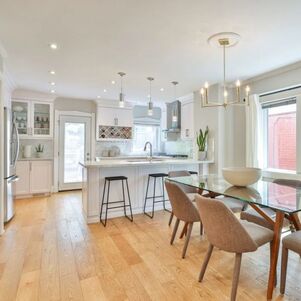 Hardwood flooring enhancing the elegance of a modern kitchen Hardwood flooring enhancing the elegance of a modern kitchen Engineered hardwood flooring is a popular alternative to solid hardwood flooring. It offers the same beautiful look but with added durability and resistance to moisture. This makes it a great choice for areas like kitchens and basements. You can find engineered hardwood flooring in a wide range of colours, allowing you to choose a timeless shade that suits your home. The Impact of Hardwood Flooring FinishesThe finish of your hardwood flooring can also affect its colour and overall look. From glossy to matte, there are various hardwood flooring finishes to choose from. A high-gloss finish can make your floors look shiny and luxurious, while a matte finish can give them a more natural and understated look. The Role of Surface Types in Hardwood FlooringThe type of surface can also influence the colour and style of your hardwood flooring. Smooth surfaces offer a classic and clean look, while hand-scraped surfaces can add a rustic and unique touch to your home. You can explore different types of surfaces to find one that matches your desired aesthetic. Hardwood Flooring Styles: The Perfect Blend of Colour and TextureWhen it comes to timeless appeal, it's not just about the colour of your hardwood flooring. The style and texture also play a crucial role. From traditional to contemporary, there are various hardwood flooring styles to choose from. Each style can be paired with different colours to create a unique and timeless look for your home. Making Your Home Look Bigger With the Right Floor ColourDid you know that the colour of your floors can impact how big your home appears? Light-coloured floors can make a room seem larger and more open, while dark floors can create a cozy and intimate atmosphere. If you're looking to make your home appear larger, consider choosing a light-coloured hardwood floor.
Frequently Asked QuestionsQ: What is the most classic hardwood floor color?
A: The most classic hardwood floor color tends to be a mid-tone, such as chestnut, gunstock, or similar medium browns. These colors have a timeless appeal and tend to go well with a variety of interior design styles. Q: What color wood floor goes with everything? A: Neutral colors like beige, gray, and light to medium browns are versatile and can match most color schemes. They also help to create a warm, inviting atmosphere in any room. Q: What color hardwood floor is best for resale? A: Neutral and classic colors are typically the best for resale as they appeal to a wide range of buyers. Light to medium browns are particularly popular. Q: What color hardwood never goes out of style? A: Natural wood colors, particularly in shades of brown, never go out of style. They offer a timeless look that can complement both traditional and contemporary interiors. Q: Is it better to have light or dark floors? A: The choice between light and dark floors depends on your personal preference and the overall design of your home. Light floors can make a room feel larger and more open, while dark floors can add warmth and create a more formal atmosphere. Q: What is more popular, dark or light hardwood floors? A: Trends in hardwood flooring colors can vary, but both light and dark floors have their appeal. Light hardwood floors offer a relaxed and modern look, while dark hardwood floors provide a more traditional and elegant feel. Q: What color floors sell a house best? A: Neutral-colored floors, such as light to medium browns or grays, are often the best choice for selling a house. They can appeal to a wide range of buyers and fit into various decorating styles. Q: What color wood floors are in style for 2023? A: While trends can change, neutral colors like light browns and grays are expected to remain popular in 2023. Natural finishes that highlight the wood's grain are also in style. Q: What color wood floors make a house look bigger? A: Light-colored wood floors can make a house look bigger as they reflect more light and give a sense of openness. Q: Is gray hardwood too trendy? A: While gray hardwood has been a popular choice in recent years, its neutral tone makes it a versatile choice that can withstand changing trends. It's a stylish option that can add a contemporary touch to your home. Laminate Flooring in Toronto: A Comprehensive Guide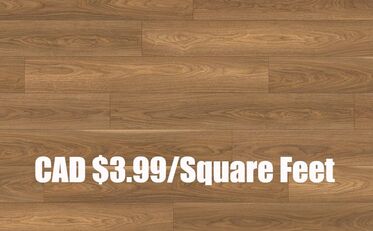 When it comes to flooring options, laminate flooring has become a popular choice for many homeowners in Toronto. This is due to its affordability, durability, and the wide variety of styles available. However, like any other flooring option, it comes with its own set of pros and cons. This blog post aims to provide a comprehensive guide to laminate flooring in Toronto, answering some of the most common questions homeowners have. The Cost of Installing Laminate Flooring in Toronto
Pros and Cons of Laminate FlooringLike any flooring option, laminate flooring comes with its own set of advantages and disadvantages. On the positive side, laminate flooring is durable, easy to clean, and resistant to stains and scratches. It's also available in a wide variety of styles, allowing you to mimic the look of more expensive flooring options like hardwood at a fraction of the cost. However, there are also some disadvantages to consider. Laminate flooring can be susceptible to water damage, making it a less ideal choice for areas with high moisture levels like bathrooms or basements. It can also be less comfortable to stand on for long periods compared to other flooring options. For a more in-depth comparison of laminate and hardwood flooring, you can check out our blog post on the topic. Laminate Vs. Hardwood Flooring: Which Is Cheaper?In terms of upfront costs, laminate flooring is generally cheaper than hardwood. However, it's important to consider the long-term costs as well. Hardwood flooring can last for decades with proper care and can be refinished multiple times, potentially making it a more cost-effective choice in the long run. Moreover, while laminate flooring is generally cheaper than hardwood, it's worth noting that hardwood flooring can last for decades and can be refinished multiple times, potentially making it a more cost-effective choice in the long run. Is It Worth To Install Laminate Flooring?Whether or not it's worth it to install laminate flooring depends on your specific needs and circumstances. If you're looking for a cost-effective, durable, and stylish flooring option, then laminate flooring can be a great choice. However, if you prefer the feel and longevity of real wood, then you might want to consider hardwood or engineered hardwood flooring instead. You can learn more about engineered hardwood flooring on our engineered hardwood flooring page. Where Should You Not Install Laminate Flooring?
Let's Wrap Things Up...In conclusion, whether laminate flooring is the right choice for you will depend on your specific needs and circumstances. If you're looking for a cost-effective, durable, and stylish flooring option, then laminate flooring can be a great choice. However, if you prefer the feel and longevity of real wood, then you might want to consider hardwood or engineered hardwood flooring instead. For more information about laminate flooring, or to explore other flooring options, feel free to visit our website. Our team of experienced professionals is always here to help you make the best decision for your home. Frequently Asked Questions About Laminate Floors in Toronto1. How much does it cost to install laminate flooring in Toronto?
The cost to install laminate flooring can vary depending on several factors, including the quality of the laminate and the complexity of the installation. On average, you can expect to pay between $2,000 and $8,000 for 1000 square feet of laminate flooring, including installation. 2. What are the disadvantages of laminate flooring? While laminate flooring is durable and easy to maintain, it can be susceptible to water damage if not properly sealed. This makes it less suitable for areas with high moisture levels, such as bathrooms or basements. 3. Is laminate flooring cheaper than hardwood? Generally speaking, laminate flooring is cheaper than hardwood in terms of upfront costs. However, hardwood flooring can last for decades and can be refinished multiple times, potentially making it a more cost-effective choice in the long run. 4. Is it worth it to install laminate flooring? If you're looking for a cost-effective, durable, and stylish flooring option, then laminate flooring can be a great choice. However, the decision ultimately depends on your specific needs and circumstances. 5. Where should you not install laminate flooring? Laminate flooring is not recommended for areas with high moisture levels, such as bathrooms or basements, as it can be susceptible to water damage. Is It OK to Install Engineered Hardwood Flooring in Your Toronto Kitchen?
Are you contemplating a kitchen remodel and wondering if engineered hardwood flooring is a viable choice? This is a question many homeowners in Toronto grapple with. While hardwood floors undeniably add a touch of warmth and sophistication, is it advisable to install them in a kitchen? Let's explore this.
The Allure of Engineered Hardwood Flooring
The Kitchen Environment: Challenges for Hardwood Flooring
A Case for Tile Flooring in the Kitchen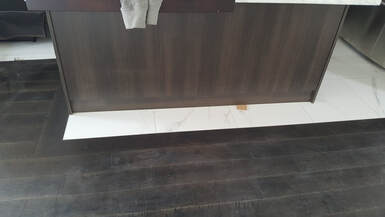 Engineered Hardwood Floor to Tile Transition Engineered Hardwood Floor to Tile Transition
Given the potential challenges with hardwood flooring in the kitchen, you might wonder if there's a more resilient option. This is where tile flooring shines. Tile is extremely durable, water-resistant, and easy to clean, making it an excellent choice for kitchens. It can withstand spills, stains, high foot traffic, and even hot pans, without sustaining damage.
While at Parqueteam Hardwood Flooring, we pride ourselves on our engineered hardwood flooring offerings in Toronto, we believe in providing our customers with the best advice for their specific needs. Given the potential for water damage and the higher maintenance needs, we typically recommend considering tile for kitchen flooring. Nonetheless, if your heart is set on the warmth and beauty of engineered hardwood, it can indeed be a suitable choice, given proper care and maintenance. In conclusion, while it's entirely possible to install engineered hardwood flooring in your kitchen, it's essential to be aware of the potential challenges. If you're ready to embrace the maintenance and care hardwood requires, it can certainly add a touch of elegance to your kitchen. But for practicality and durability, tile flooring might be the more sensible choice. FAQ
1. What is engineered hardwood flooring?
Engineered hardwood flooring is a type of flooring that combines a real hardwood surface layer with multiple layers of plywood or high-density fiberboard underneath. This construction makes it more stable and less susceptible to changes in temperature and humidity compared to solid hardwood. 2. How does engineered hardwood flooring compare to solid hardwood flooring? While solid hardwood is made entirely of a single type of wood, engineered hardwood consists of a thin layer of real wood on top and several layers of plywood or high-density fiberboard beneath. This makes engineered hardwood more stable and less prone to warping or shrinking due to changes in temperature or humidity. However, solid hardwood can typically be sanded and refinished more times than engineered hardwood. 3. What are the pros and cons of installing engineered hardwood flooring in a kitchen? The pros of installing engineered hardwood flooring in a kitchen include its attractive appearance, comfort underfoot, and durability. However, it can be susceptible to water damage if not properly sealed and maintained. It also has limitations when it comes to refinishing. 4. How do I maintain engineered hardwood flooring in a kitchen? To maintain engineered hardwood flooring in a kitchen, it's important to clean up spills immediately to prevent water damage. Regular sweeping or vacuuming can help remove dirt and debris that could scratch the floor. It's also recommended to use a damp mop and a cleaning product designed for engineered hardwood floors for regular cleaning. 5. Can engineered hardwood flooring be refinished? Yes, engineered hardwood flooring can be refinished, but the number of times it can be refinished depends on the thickness of the top layer of wood. It's important to consult with a flooring professional to determine if your engineered hardwood floor can be refinished. Engineered vs Solid Hardwood in Toronto: Is Engineered Flooring Just as Good?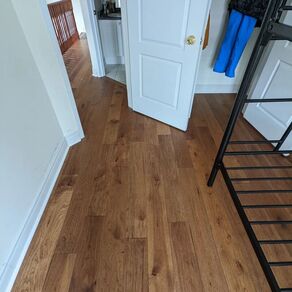 As a proud Toronto-based company specializing in all things related to hardwood flooring, we frequently encounter a question that many homeowners and property developers ask: "Is engineered hardwood just as good as solid hardwood?" This is an important question, especially for those of us in the Greater Toronto Area, where climate conditions can greatly impact the longevity and aesthetics of our floors. Understanding Hardwood Flooring: Solid vs. Engineered Before we delve into our main question, it's crucial to understand what we mean by "solid hardwood flooring" and "engineered hardwood flooring". Solid hardwood flooring is exactly what it sounds like: a flooring material made from a solid piece of hardwood. It's renowned for its timeless beauty, durability, and the value it can add to a property. Engineered hardwood flooring, on the other hand, is a layered product. The top layer is real hardwood, but it's bonded to several underlying layers of plywood or high-density fibreboard. This structure provides engineered hardwood with some unique benefits, which we'll discuss in more detail. The Merits of Engineered Hardwood FlooringEngineered hardwood flooring has grown increasingly popular in Toronto and the Greater Toronto Area, and for good reason. Here are some of the key advantages of engineered hardwood: 1. Stability: Engineered hardwood is less susceptible to warping and movement caused by changes in humidity and temperature. This makes it a great choice for areas where moisture levels can fluctuate, like basements or kitchens. 2. Versatility: Engineered hardwood can be installed over a variety of surfaces, including concrete and radiant heating systems, offering a flexibility that solid hardwood often can't match. 3. Variety: Because the top layer of engineered hardwood is real wood, it comes in as many species and styles as solid hardwood. You can find engineered versions of all your favourite hardwoods, from oak to maple to exotic varieties. Engineered vs Solid Hardwood: A Toronto Perspective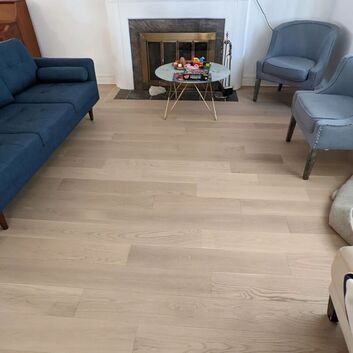 In the Toronto climate, where we experience both humid summers and dry winters, the stability of engineered hardwood can be a significant advantage. However, that's not to say that solid hardwood doesn't have its place. Solid hardwood flooring is often seen as the premium choice because of its potential for longevity. It can be sanded and refinished multiple times, which can keep it looking great for decades. Engineered hardwood can also be refinished, but the number of times depends on the thickness of the top layer. So, is engineered hardwood just as good as solid hardwood? The answer depends on your specific needs and circumstances. If you're looking for maximum longevity and have the right conditions to maintain it, solid hardwood is a fantastic choice. If you need something more versatile and stable, especially in areas with variable moisture or over concrete subfloors, engineered hardwood is likely the better option. In conclusion, both solid and engineered hardwood offer unique benefits and can be the "right" choice depending on your specific needs. As Toronto's hardwood flooring experts, we're here to help you make the best choice for your home or project. Don't hesitate to reach out to us with your hardwood flooring questions! Choosing the Best Hardwood Flooring for Your Toronto Home: Engineered vs. Solid When it comes to enhancing the look and feel of your home, the type of flooring you choose plays a crucial role. In Toronto, hardwood flooring is a popular choice due to its timeless appeal, durability, and the warmth it brings to any space. But what type of hardwood flooring is best for Canadian homes?
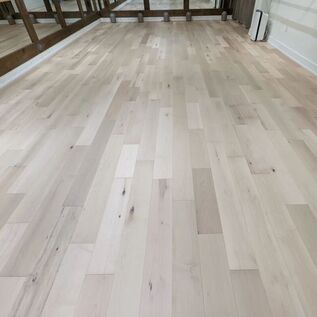 Why Engineered Hardwood Flooring is a Top Choice in Toronto Engineered hardwood flooring offers the beauty of solid wood but with increased stability. This makes it particularly suitable for the Canadian climate. The plywood base layers handle humidity changes better than solid wood, reducing the risk of warping or cupping. Plus, engineered hardwood flooring can be refinished, just like solid hardwood. This means that, even after years of use, your floors can look as good as new with a bit of maintenance. When it comes to hardwood flooring in Toronto, engineered hardwood flooring stands out as a top choice. Its durability, resistance to climate-induced damage, and the wide variety of available species make it an excellent option for any home. Remember, the best hardwood flooring is not only about the type of wood or the construction method. It's about choosing a floor that matches your style, meets your family's needs, and stands up to Toronto's unique climate. With the right choice, you can enjoy the beauty and warmth of hardwood floors for many years to come. The Ultimate Guide to Hardwood Flooring in Toronto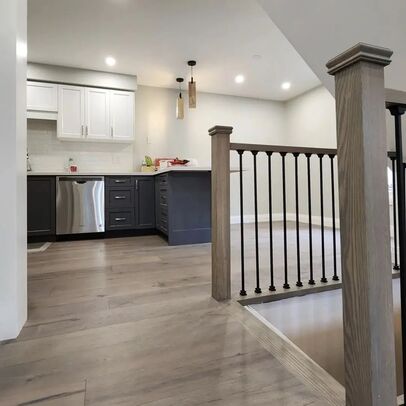 When it comes to adding warmth and elegance to your home, hardwood flooring is the go-to choice for many homeowners in Toronto. It's no secret that hardwood floors offer timeless beauty, durability, and longevity. However, choosing the right hardwood flooring for your Toronto home can be challenging, with factors like cost, installation, and maintenance to consider. In this comprehensive guide, we at will answer all your burning questions and help you navigate the world of hardwood flooring in Toronto with ease. 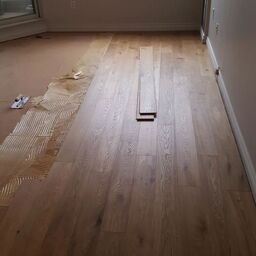 The Cost of Hardwood Flooring in Toronto How Much Does it Cost to Install 1000 Square Feet of Hardwood Floors in Toronto? The cost of hardwood flooring varies depending on factors like the type of wood, the installation method, and the area you live in. On average, hardwood flooring installation in Toronto can range from $8 to $15 per square foot, including labor and materials. For a 1000 square-foot space, expect to pay between $8,000 and $15,000. How Much is Hardwood Floor per Square Foot in Toronto? The price of hardwood flooring in Toronto can range from $3 to $14 per square foot, depending on the species, grade, and finish of the wood. Exotic hardwoods, like Brazilian cherry or mahogany, can cost more, while domestic woods, like oak or maple, are generally more affordable. How Much Does it Cost to Replace Hardwood Floors in Toronto? Replacing hardwood floors in Toronto can cost between $6 and $12 per square foot, depending on the type of wood, finish, and installation method. If your existing floors are in good condition, you might consider hardwood floor refinishing, which can cost around $4.50 to $6 per square foot in Toronto. 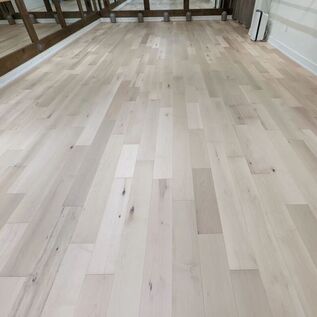 The Best Hardwood Flooring Options and Pricing Is Hardwood Cheaper Than Engineered Hardwood? While solid hardwood flooring often has a higher upfront cost compared to engineered hardwood, it can offer better value in the long run due to its durability and refinishing options. Engineered hardwood flooring , on the other hand, tends to be more affordable and versatile, with a wide range of colors, styles, and installation methods, such as nailing or gluing, and even click floating systems. What are the Disadvantages of Engineered Wood Flooring? The thinner wear layer of engineered hardwood limits the number of times it can be refinished compared to solid hardwood. Which Hardwood Floor is Best? The best hardwood floor for your Toronto home depends on your personal preferences, budget, and the room's conditions. Oak, maple, and hickory are popular choices for their durability and timeless appeal. However, consider factors like foot traffic, moisture levels, and the desired aesthetic when making your decision. Which Hardwood Floor Color is Best? Light hardwood floors can make a room feel more spacious and bright, while dark hardwood floors create a sense of warmth and coziness. Consider your home's interior design and the amount of natural light when choosing a hardwood floor color. Are Dark or Light Hardwood Floors Better? There is no definitive answer to this question, as the choice between dark or light hardwood floors is a matter of personal preference. Both options offer their unique set of benefits, such as enhancing the room's size or creating a warmer ambiance. Which Hardwood Floors Last Longest? Hardwood floors made from species like oak, hickory, and maple tend to last the longest due to their durability and resistance to wear and tear. Proper maintenance, including regular cleaning and refinishing when needed will also significantly extend the lifespan of your hardwood floors. 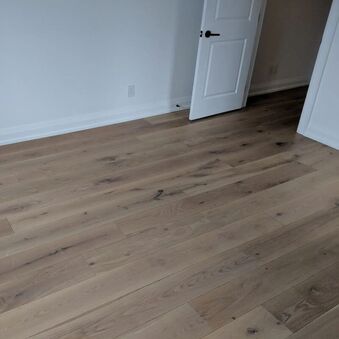 Finding the Right Hardwood Flooring Installers in Toronto Hardwood Floor Installation Near Me When searching for "hardwood floor installation near me," it's crucial to find experienced and reputable hardwood flooring installers in Toronto. At Parqueteam Hardwood Flooring, our team of experts specializes in installing engineered hardwood flooring and solid hardwood floors. We ensure a seamless, efficient, and professional installation process tailored to your specific needs. Nailing Hardwood Floors Nailing hardwood floors is a common installation method used by hardwood flooring installers. It involves securing the hardwood planks directly to the subfloor using nails or staples. This method is suitable for solid and some engineered hardwood floors but requires an experienced installer to ensure a flawless finish. Installing Engineered Hardwood Flooring Installing engineered hardwood flooring can be done using various methods, such as nailing, gluing, or floating. The right installation method depends on the type of engineered hardwood and the existing subfloor. Our team at Parqueteam Hardwood Flooring will assess your situation and recommend the best installation method for your Toronto home. 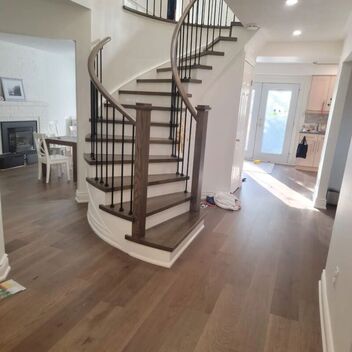 Selecting the perfect hardwood flooring for your Toronto home is a significant investment that requires careful consideration. By understanding the costs, installation methods, and different types of hardwood floors available, you can make an informed decision and choose the best option for your needs. At Parqueteam Hardwood Flooring, we pride ourselves on our expertise, quality workmanship, and commitment to customer satisfaction. With our range of hardwood flooring options, including engineered hardwood flooring in Toronto and solid hardwood options, we are confident that we can help you find the perfect solution for your home. Contact us today for a consultation or to request pricing for hardwood flooring. |
Parqueteam Hardwood FlooringHardwood Flooring Toronto and The Greater Toronto Area. Archives
December 2023
Categories
All
|
Areas We Produly Serving... |
|




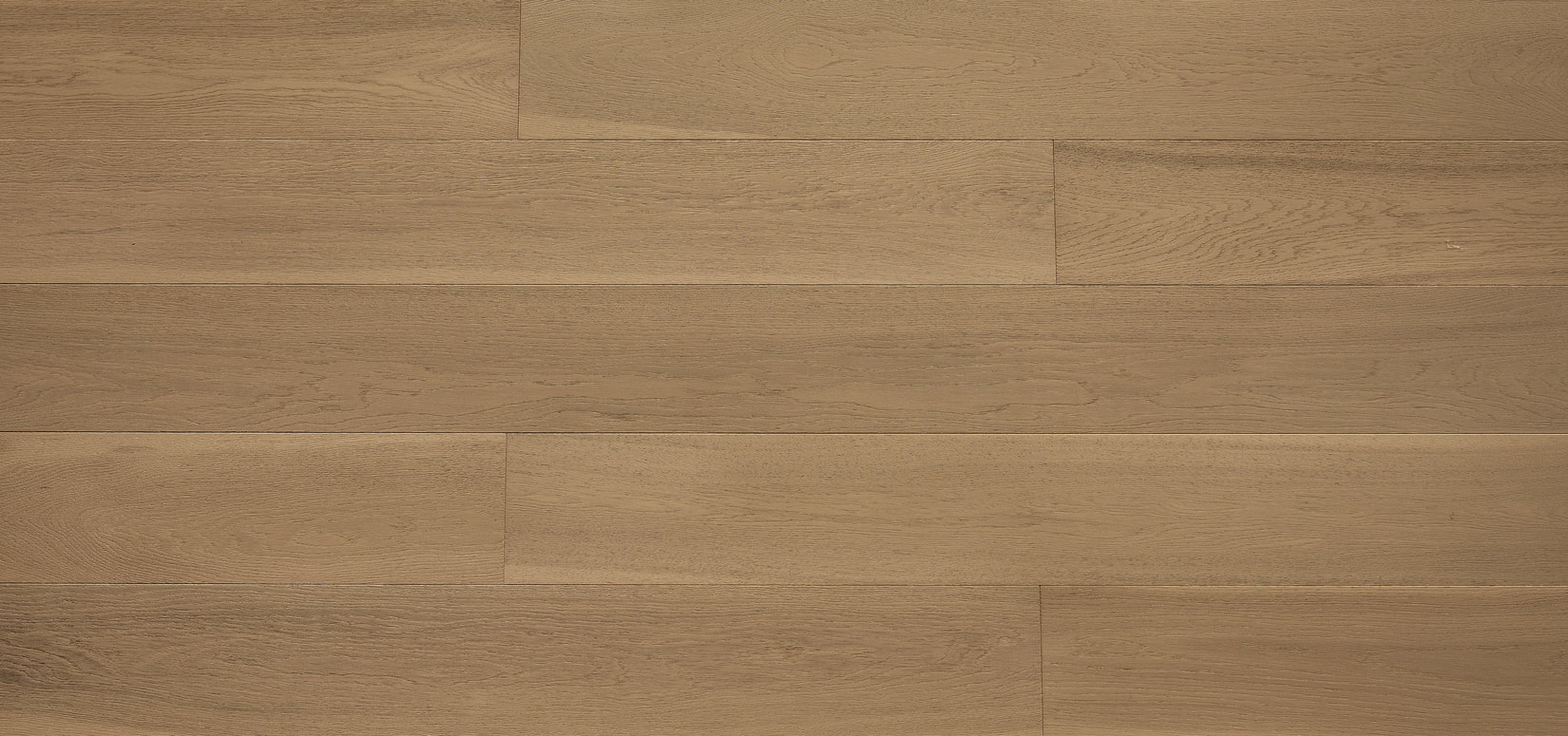
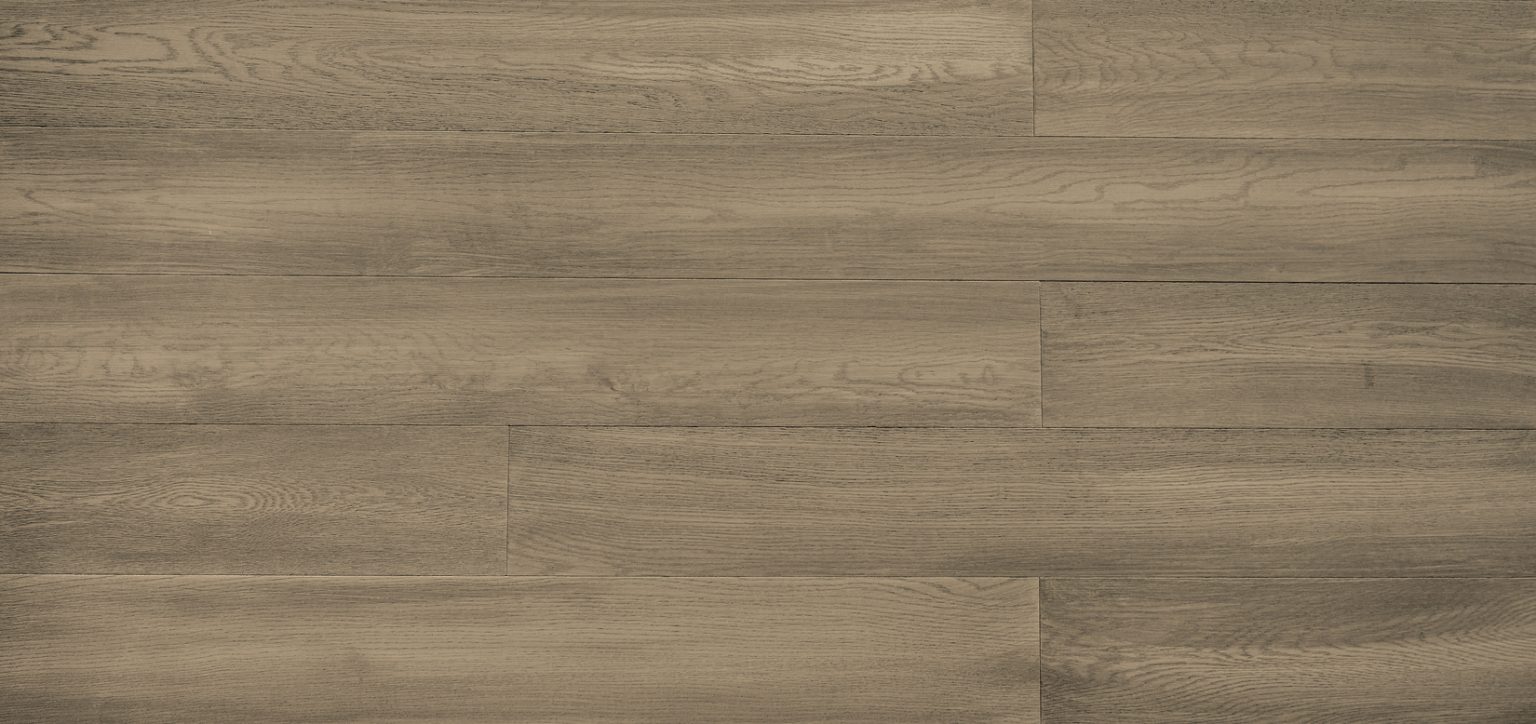
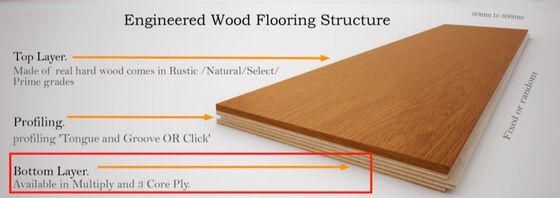
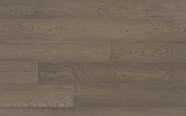
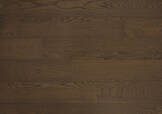
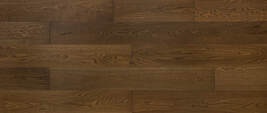
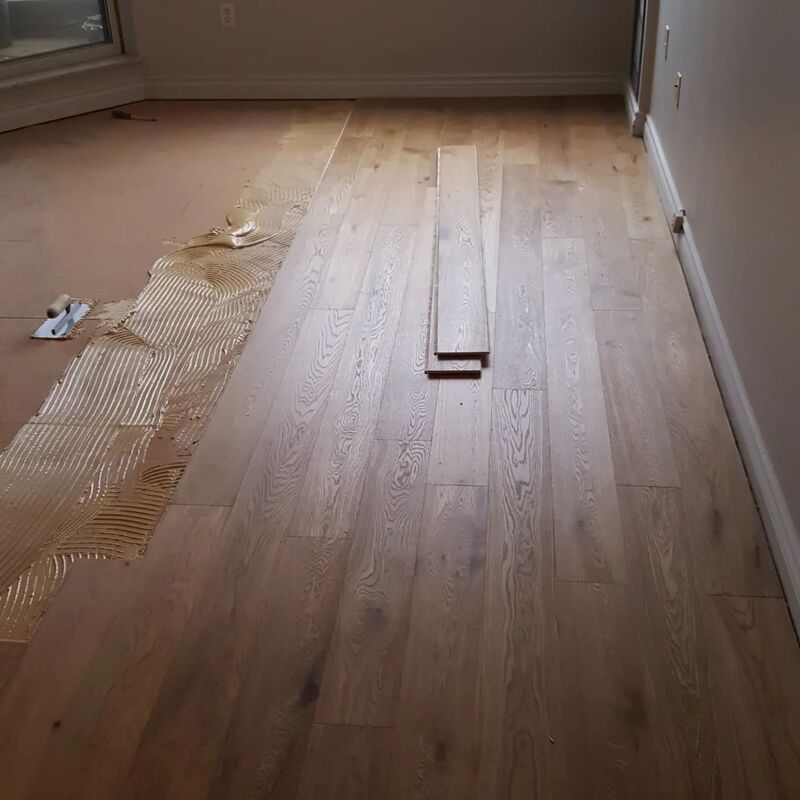
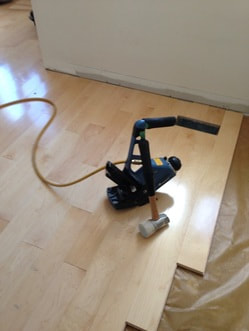
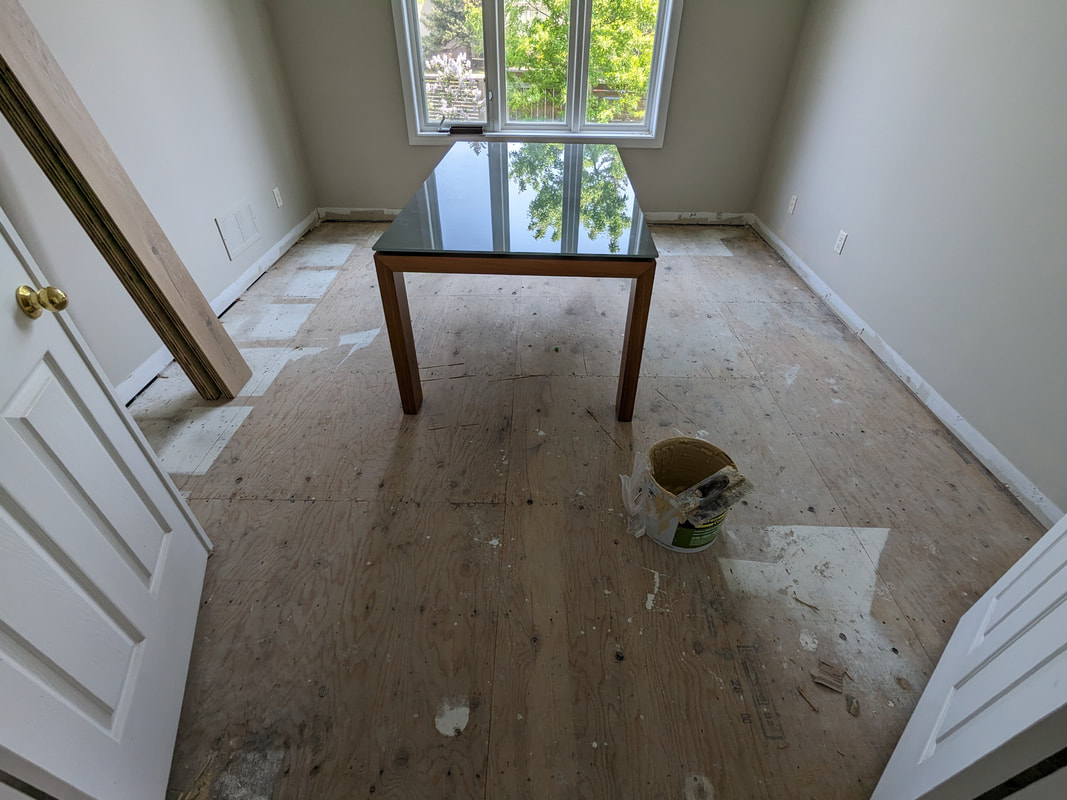
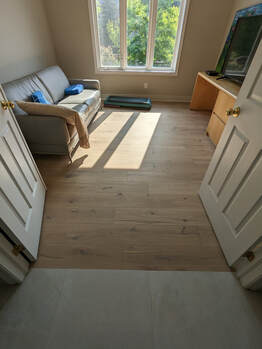
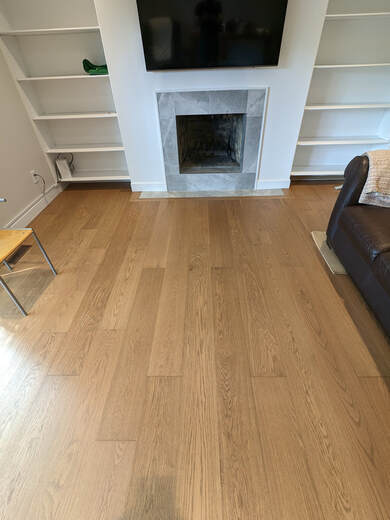
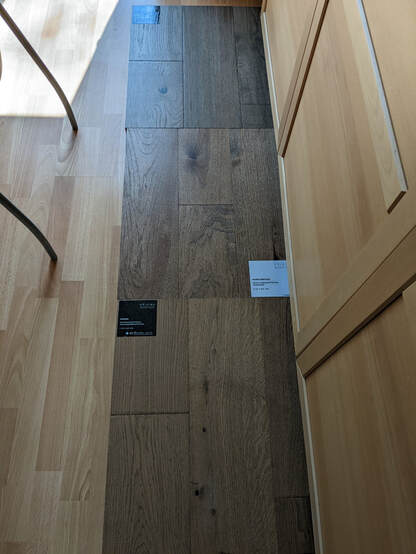
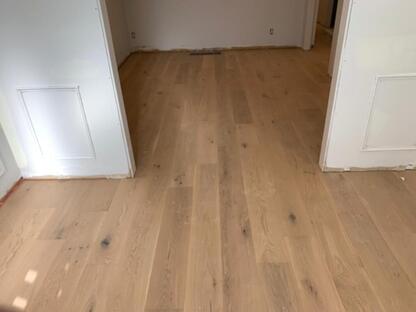
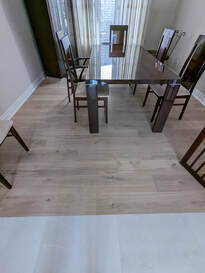
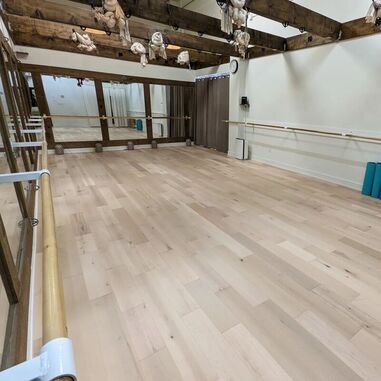
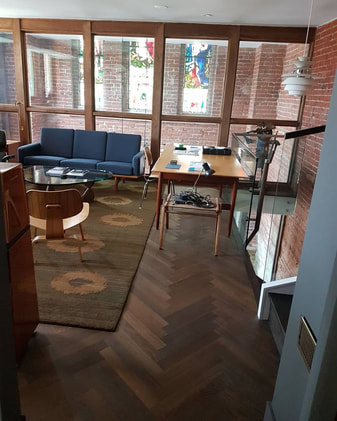
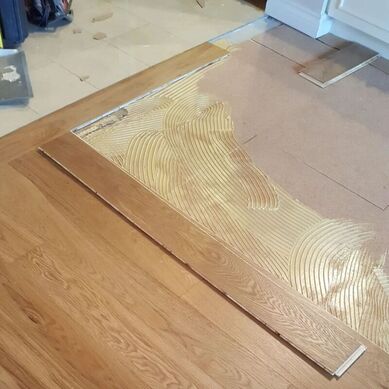
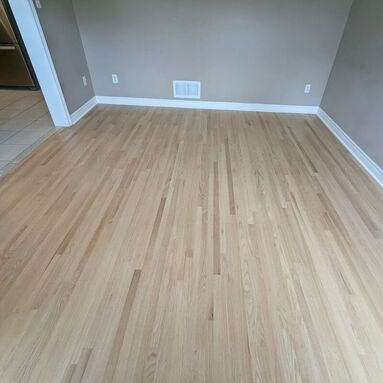
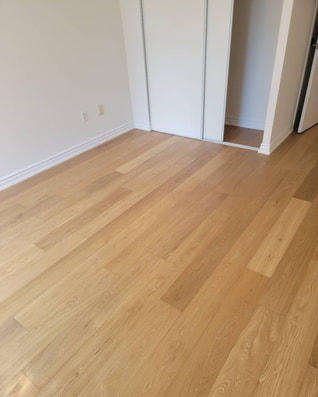
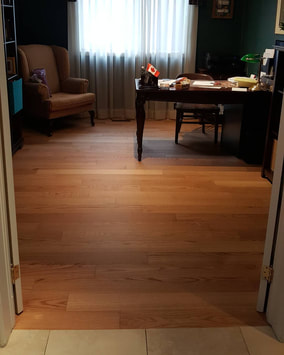
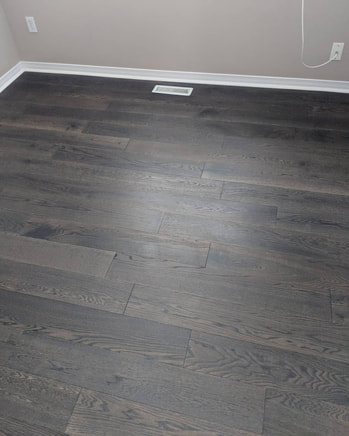
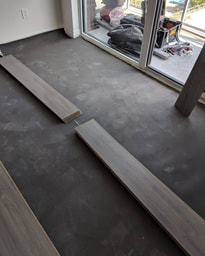
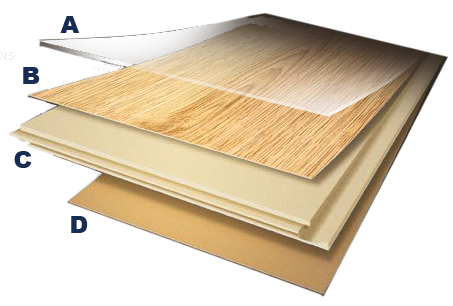
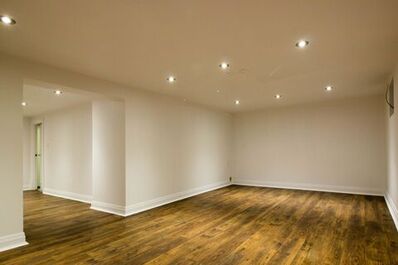
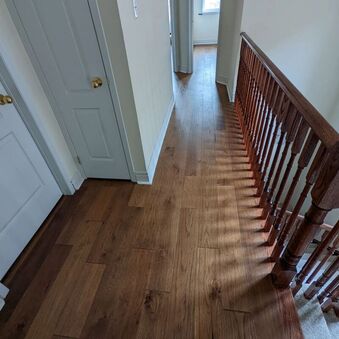
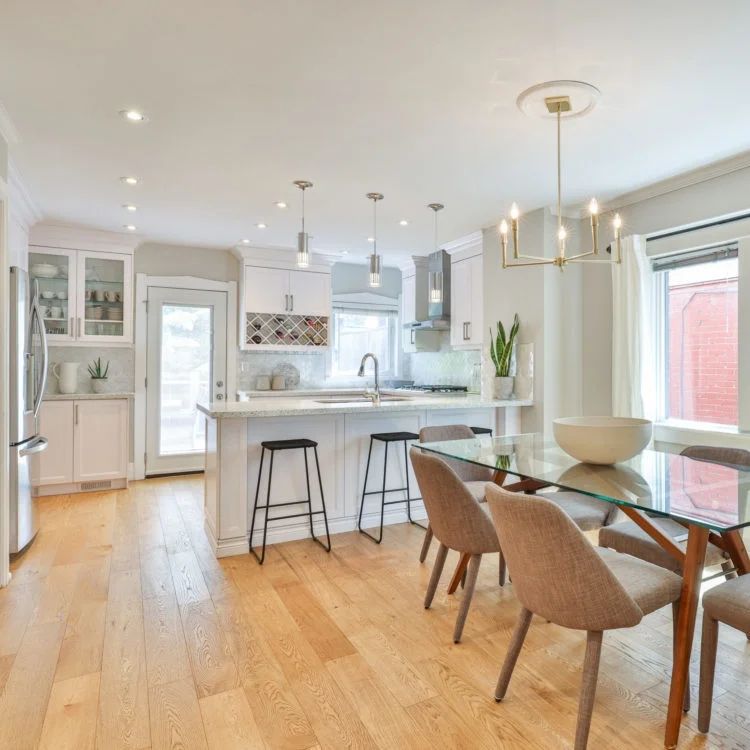
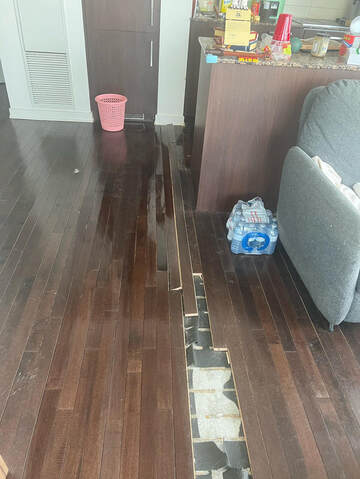


 RSS Feed
RSS Feed

